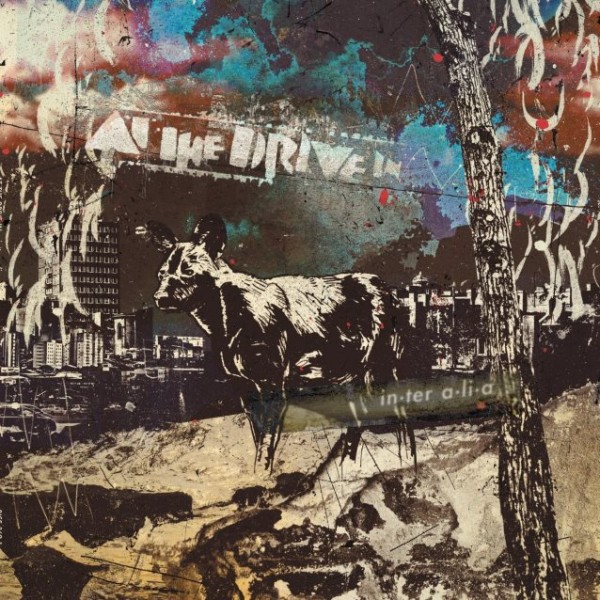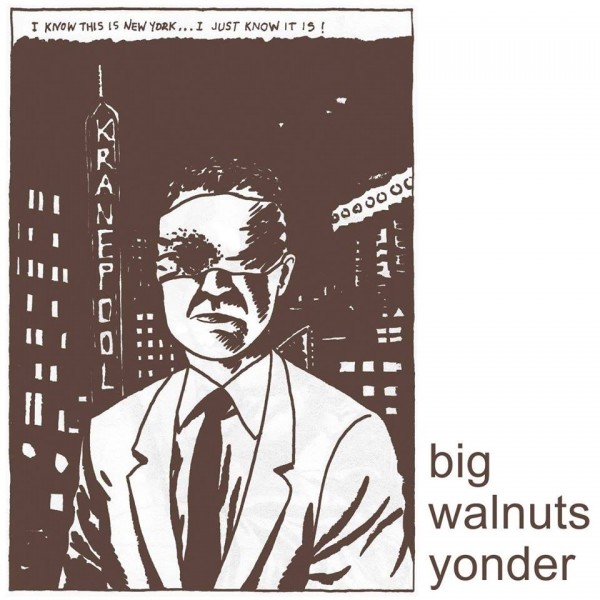For a long time, it was hard to envision any kind of world where El Paso’s At The Drive-In could amicably sit silently in a room with one another, let alone make music together. Not that there weren’t calamitous appeals from legions of devotees. These five men crafted the most indispensable punk music of the 1990s. Along with Refused and Jawbreaker, they earned a level of adoration and obsession that few can only dream. As time rolled on and lucrative reunion tour deals reared their ugly heads, these fantasies began veering alarmingly close to reality. Now, Refused are fucking undead, Jawbreaker headlining Riot Fest and At The Drive-In, sans guitarist Jim Ward, have delivered a new record, in•ter a•li•a. Reports of pigs freezing over and hell flying are surely soon to follow. It is unfair to compare this to their previous output, but their last LP, Relationship of Command, casts a shadow so long and deep that it’d be remiss to ignore it. So let’s just cut to the chase shall we? This is not that album.in•ter a•li•a. is dwarfed by that masterpiece. Now that we have that cleared up, let’s get to the next question. Is it any good? Mostly, yes. It’s got some deep-seated problems, but it’s still an interesting addition to the band’s catalog.
It’s genuinely hard not get completely bowled over by the opener ‘No Wolf Like The Present’. It hits like a Mike Tyson surfing on a tsunami. As with all the best cuts from ATD-I, it’s captures and mixes together the sound of five incredible musicians working perfectly in sync with one another. Omar and Keeley Davis’s off-kilter dueling guitars are offset against Paul Hinojos’ and Tony Hajjar’s pummelling rhythm section, while Zavala’s vocals and abstract lyrics leave no survivor in its wake. It’s simply a five star cut of punk rock hustle and in many ways is a litmus test for the album as a whole. While this is may be a great slice of Drive-In’s particular brand of hardcore though, these men are not in the same space they were when they left. This is a band who have aged. Most notable in Cedric, whose manic, uncontrollable jackal wail has been replaced with more technically proficient bark. It’s a small change, but one that the contributes to an overriding sense of the uncanny valley which, at its worst, makes them sound like a cover band. This raises an important decision that you need to make before embarking on the album. Whatever enjoyment you’ll be able to derive is entirely dependent on how much of this you’re willing to accept. If you’re able to set aside your nostalgia and allow them to wear their age without shame, then the album pays out some really great dividends.
Even a cursory glance at the track listing reveals at least half a dozen absolutely blistering tracks. The aforementioned opener is as exciting and passionate as any of the best songs released this year. ‘Governed By Contagions’ is the best song that Relationship missed out on. ‘Tilting At The Univendor’ manages to embed a decidedly pop chorus within a chaotic mess of noisy post-punk to wonderful effect. There is the horrifically bleak and nihilistic examination of child abuse over a dub bass on ‘Incurably Innocent’ while ‘Ghost-Tape No.5’ and ‘Hostage Stamps’ close out the record in an excellent one-two punch of slinking discomfort and rollicking post-hardcore prowess. There is a great deal to be plucked from this if you’re willing. But it does require you to lower your expectations of one of the most reliable groups of the last three decades. While that is a big ask, it is mostly worth it.
The killing flaw here, as has always been with ATD-I, is production. There’s an oft-repeated aside about the band never being able to fully replicate the manic energy and intensity of their live shows in the studio. To their credit, with each LP, they attempted something new. There is a clear progression from lo-fi aesthetics to a more polished, radio-friendly sound on their first three LPs. None ever fully captured the scope of what they could achieve on stage, but they all offered some interesting perspective. Here, they have tried something new again: Overproduction. In spite of guitarist Omar Rodriguez-Lopez’s history behind the desk, this is a terribly produced album. It almost exclusively exists in one volume with all the instruments turned up to 11. The problem is that when everything is turned up to 11, nothing is. So there are moments where it is so clear that the music was supposed to surge forth triumphantly and instead just gets lost within itself. ‘No Wolf’ is a great example. When Hajjar’s stellar drums land in the mix, we should be pleading for mercy as we had with ‘Arcarsenal’. But we don’t. All we get is a couple more instruments chucked in the mix. It’s a real shame because it demonstrates a fundamental misunderstanding of what made the group’s music so powerful: space.
It’d be foolish to say that At The Drive-In were a quiet band. They weren’t. They were young, snotty and incredibly loud. But they also understood the importance of silence and breathing space within a mix, like a hardcore Talk Talk. Listen to tracks like ‘Napoleon Solo’ or ‘Invalid Litter Dept.’, they both have explosive crescendos but are primarily marked by their deep sense of isolation and distance. It makes their finales more compelling and elevated the band beyond their peers who felt that distortion and speed were the only sources of power in music. Time and time again you’re hoping the album will slow things down and give everything a little bit more room to breathe and it just doesn’t. While this makes for a fairly incendiary punk record, it makes for an At The Drive-In record that feels…off.
Relationship of Command has been mentioned more than a few times, and it’s easy to see why. But it’s not an entirely fair comparison. The real rosetta stone here is Vaya and In/Casino/Out. Both have a decidedly more straightforward direct viewpoint. There are excursions which don’t really fit, but they’re mostly fairly clear where they’re going. In many ways, that’s what in•ter a•li•a is going for. It knows that it could never be Relationship. That was an album made by five piss and vinegar fuelled musicians with youth in their bones and enough fury to level an army. It would be almost impossible to return to that world with fully formed psyches. It’d be embarrassing for all parties involved. By using Casino as their reference point, they’re still finding more to say and interesting ways to say, without looking like twats. So while this isn’t the return to form that a decade of prayers pleaded it would be, it’s still a great little album. This isn’t the Sex Pistols in 2006 or the Pumpkins’ Zeitgeist or even the shambling corpse that calls itself Refused. This is At The Drive In, without a hyphen, and it’s fucking good. Will Murphy






